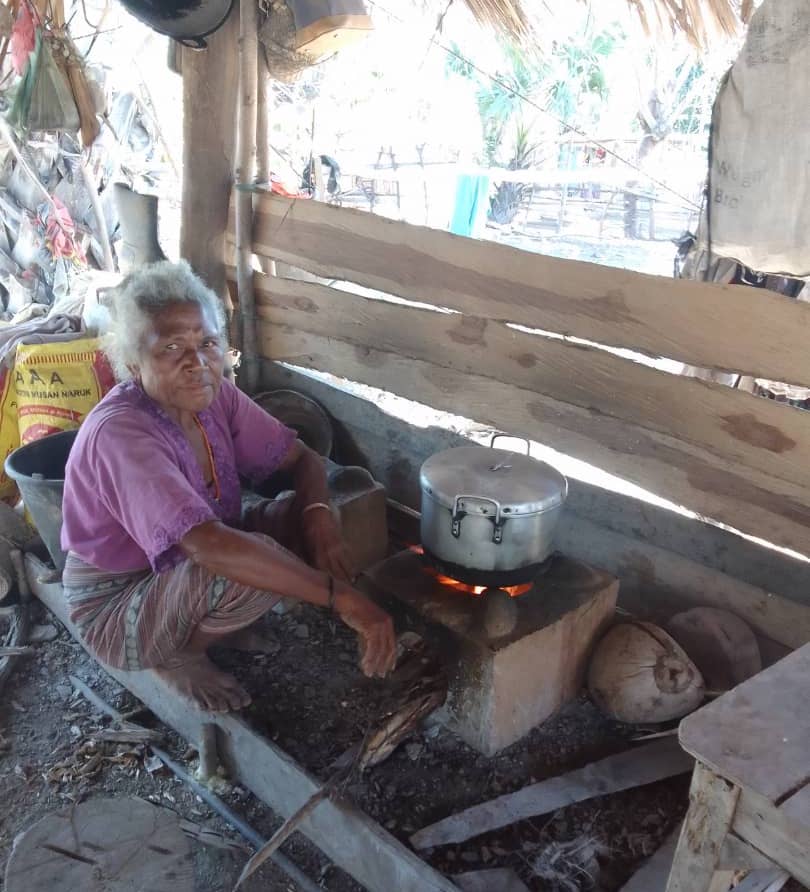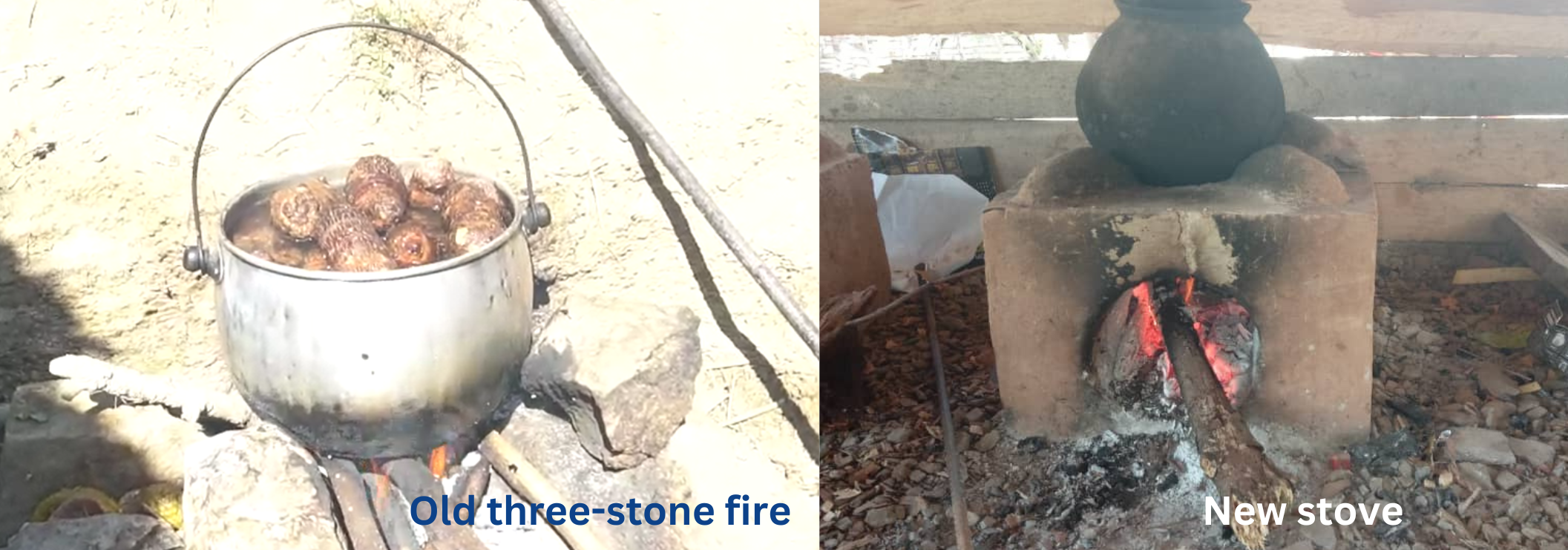Reducing Deforestation and Health Issues: How Improved Woodstoves Have Transformed Lives and the Environment in Oe-cusse
December 28, 2023

Ms. Berta Obe cooking in her new woodstove
In the remote village of Oebaha in Oé-cusse, deforestation has been a pressing issue, leading to various problems such as soil degradation, erosion, flash floods, and landslides. A major driver of deforestation is the collection of firewood, a practice that both exacerbates the issue and impacts the lives of the local people. So, whilst aiming to restore forests, we need to approach the root cause of their destruction, acknowledging that the surrounding communities rely heavily on the forest for their firewood collection.
Berta Obe, a resilient 60-year-old resident of Oebaha, shared her struggle of walking 2-3 kilometers to the (nearest?) forest and spending roughly 3 hours collecting firewood. This physically demanding routine entails carrying 20kg of firewood on her head through rugged terrain. Due to the inefficiency of cooking on an open fire, the wood she gathers is barely sufficient for 2 days of cooking, meaning she must return to the forest 3 times a week to collect firewood. Women in rural areas of Oé-cusse, like Berta, are primarily responsible for cooking. Making this firewood collection a common chore. This routine not only exhausts people but also leads to a rapid depletion of the forest, with each household cutting around 60kg of wood from the forest per week solely for cooking needs.
The everyday use of traditional, open-fire stoves, such as the three-stone stove, has aggravated environmental and health issues in the community. A survey conducted by A-FFOS guided by UNDP revealed that besides the substantial amount of firewood required for the three-stone stove, the smoke produced during cooking also leads to several health problems with 95% of the surveyed individuals reporting burning eyes, 83% experiencing coughing, and 45% suffering from respiratory problems. Although the community itself is severely affected by these negativities. They also explained to not have other alternatives as they don’t have the necessary money for a new stove. So, they simply had to work with what they had at that time.
To address these challenges UNDP and A-FFOS designed a cost-effective innovative wood stove that can be constructed with locally available materials (mainly clay from the nearby mountains), and requires minimal skill to build. The stove's efficiency was rigorously tested beforehand to ensure that this newly introduced stove would use less firewood and have less impact on people’s health. Afterward, community mobilizations and awareness campaigns were conducted to engage the community in constructing the new stoves. Currently, 75 households in Oebaha are benefiting from 110 improved woodstoves, with some households even having constructed two. A follow-up impact survey revealed remarkable improvements: the wood usage is reduced by 1/3 therefore, the interval for firewood collection is also reduced to once a week, lowering the pressure on forests. Furthermore, 98% of respondents reported improved health conditions: no more respiratory problems, burning eyes, or coughing since adopting the improved stove.
The community's satisfaction with the new stove is overwhelming, as they unanimously expressed their support and willingness to encourage others to adopt it. Women of Oebaha believe this change will not only improve their lives but will also restore their surrounding forest. Berta Obe shared her joy in using the new stove: "I am happy to use the improved stove because it produces less smoke compared to the old one. I prefer it as the old stove created dust, produced a lot of smoke, and demanded excessive firewood. I believe that in the future, every household in our village will use this stove". The next step is the implementation of alternative woodlots close to the community and forest restoration programs, to allow the environment to fully thrive again.

The old three stones fire and new stove

 Locations
Locations